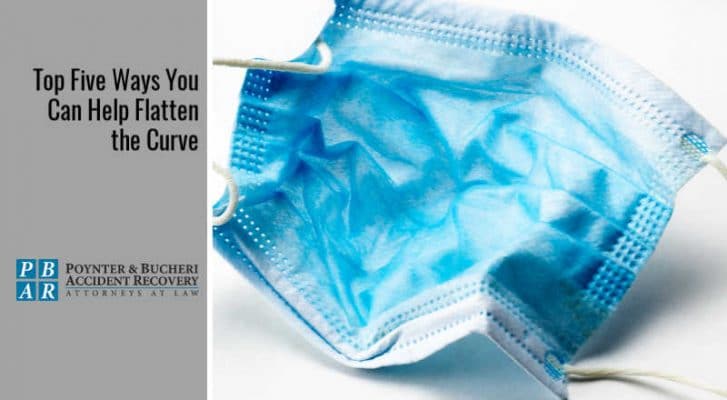
Top Five Ways You Can Help Flatten the Curve

What is the ultimate benefit of “self-quarantine,” and what does “flatten the curve” mean long term?
What you’ll learn reading this article:
- How you can help lessen the load on our healthcare system during the Covid-19 pandemic
- Ways you can help your fellow Hoosier during this time through donations
- What we can learn from the 1918 influenza pandemic about dealing with this pandemic
You may have heard a lot of terms lately in reference to the novel coronavirus and its spread around the globe. Terms such as “flatten the curve,” “social distancing,” “self-quarantine” and “self-isolation” have become part of our daily vocabulary, but you may be wondering what exactly they mean.
We’ve broken down the terms for you here to help you and your loved ones better understand and navigate the pandemic.
Flattening the curve
What is this curve everyone speaks of? The curve, simply put, is the projected number of cases of the virus over time set along a graph. Because of the virus’s ability to spread, even though those who are asymptomatic, the exponential growth of the virus has the potential to be quite steep.
The problem lies not only in many individuals contracting the virus but in our healthcare system’s ability to take on and treat the number of cases. To flatten the curve, then, is to work to lessen the load on our infrastructure by lessening the number of cases possible at one time through social distancing and self-isolation.
According to historian John M. Barry, the most important lesson we learned as a nation from the 1918 Spanish influenza epidemic involves the notion of flattening the curve, accomplished through the following:
- Washing hands
- Social distancing
- Covering your cough
- Staying home when symptomatic.
Visual learner? Click here to see a graphic representation of the curve and how flattening the curve works.
How do I practice social distancing?
Social distancing refers to keeping a certain recommended distance from other individuals when out in public.
The current CDC guidelines for the coronavirus recommend staying at least six feet away from others to avoid exposure to the virus. This means if you venture out into your community, try to maintain this distance while going about your activities.
The CDC and President Trump also have issued statements on avoiding crowds of more than 10 individuals at this time; this is because even social distancing can allow for the spread of the virus as studies show it can survive on various surfaces and even in the air for periods of time. Because of this, to truly help to flatten the curve, self-isolation or self-quarantining if you feel you have symptoms is paramount.
What does it mean to self-isolate or self-quarantine?
Self-isolation refers to staying at home and not venturing out. This requires individuals to collect supplies necessary for living at home for several weeks, such as non-perishable food, medicines and household supplies.
Self-quarantine refers to staying home when feeling sick or symptomatic, whether or not you have tested positive for the virus.
Feeling overwhelmed? Here are some ways to help your fellow Hoosier and American.
- Donate Blood – The Indiana Red Cross has issued an urgent call for blood donations during this time, fueled by the cancellation of many blood drives. If you are able, consider donating blood.
- Donate Time – Organizations such as Gleaners Food Bank are in need of volunteers at this time to help feed those who are food insecure. If you are not at high risk for the coronavirus, you might consider volunteering.
- Donate Resources – If you have the ability to donate money or resources such as medical supplies, cleansers or canned goods, there are many organizations in Indianapolis and its surrounding areas in need of supplies.
Poynter & Bucheri Accident Recovery – Indianapolis Personal Injury Attorneys
If you or a loved one has been injured physically or mentally by a person, product or company, you need to know your legal rights. Our personal injury attorneys are experienced with cases like yours and can evaluate what your case may be worth. We will ensure that you are protected and compensated for your injuries and losses. Don’t hesitate—one of our experienced attorneys can assist you right away. Call (800) 265-9881 for a free case review.
